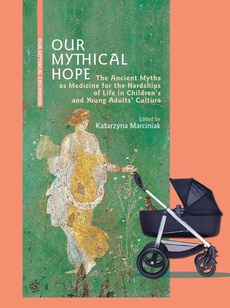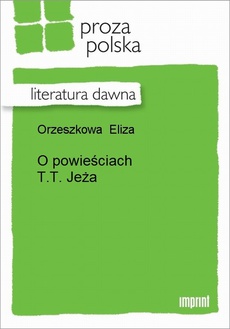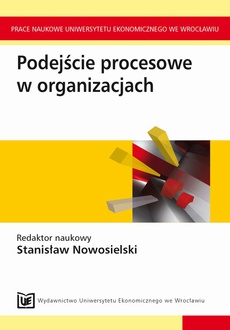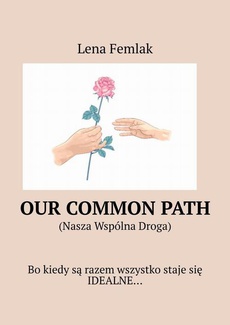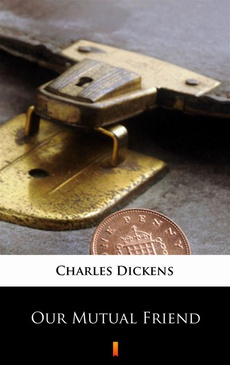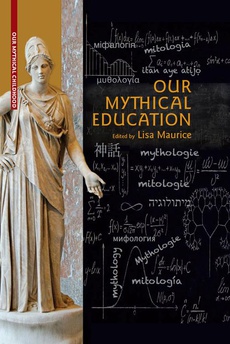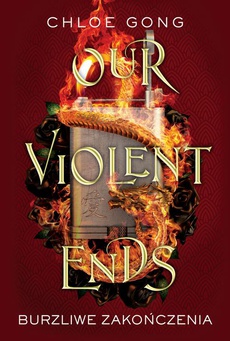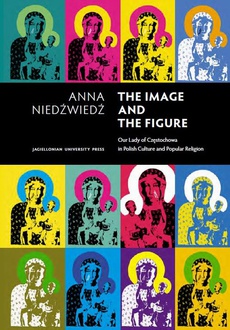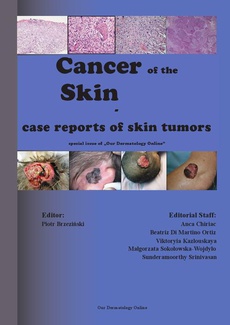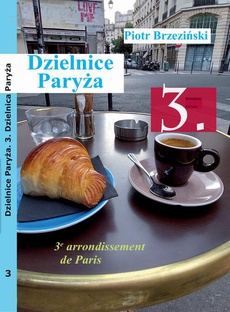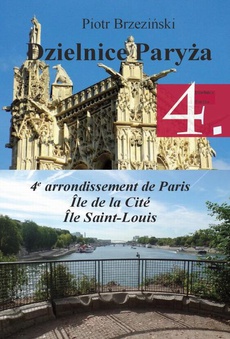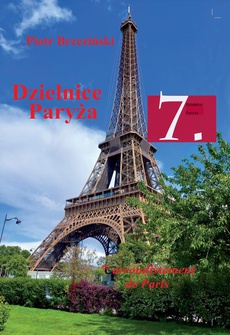POLECAMY
Our Mythical Hope
The Ancient Myths as Medicine for the Hardships of Life in Children’s
Redakcja:
Wydawca:
Format:
ibuk
Classical Antiquity is a particularly important field in terms of “Hope studies” […]. For centuries, the ancient tradition, and classical mythology in particular, has been a common reference point for whole hosts of creators of culture, across many parts of the world, and with the new media and globalization only increasing its impact. Thus, in our research at this stage, we have decided to study how the authors of literary and audiovisual texts for youth make use of the ancient myths to support their young protagonists (and readers or viewers) in crucial moments of their existence, on their road into adulthood, and in those dark hours when it seems that life is about to shatter and fade away. However, if Hope is summoned in time, the crisis can be overcome and the protagonist grows stronger, with a powerful uplifting message for the public. […] Owing to this, we get a chance to remain true to our ideas, to keep faith in our dreams, and, when the decisive moment comes, to choose not hatred but love, not darkness but light. (Katarzyna Marciniak, University of Warsaw; From the introductory chapter)
The book is to be recommended for academics as well as graduate and postgraduate students working on the reception of Classical Antiquity and its transformations around the world. (David Movrin, University of Ljubljana)
"Our Mythical Hope" is the latest collection of articles by scholars participating in an ongoing collaboration to ensure that the beauty and profundity of Classical myth remain known, and (hopefully) remain part of our modern culture. The size of this compendium, the sweep of subjects considered, the involvement of leading experts from around the world, all testify to how important and extensive this initiative has become over the last decade. The project’s continued commitment to engage all ages, especially the young, and to extend its outreach beyond the Academy merely, makes it a leading model for how research retains its relevance. (Mark O’Connor, Boston College)
The publication is licensed under the Creative Commons Attribution-Share Alike 3.0 Poland license (CC BY 3.0 PL) (full license available at: http://creativecommons.org/licenses/by/3.0/pl/legalcode).
*********
Publikacja na licencji Creative Commons Uznanie autorstwa 3.0 PL (CC BY 3.0 PL) (pełna treść wzorca dostępna pod adresem: http://creativecommons.org/licenses/by/3.0/pl/legalcode).
*********
PhD Hab. Katarzyna Marciniak - is Professor, Director of the Centre for Studies on the Classical Tradition (OBTA), and Vice-Dean for International Cooperation at the Faculty of “Artes Liberales” at the University of Warsaw. She heads the Cluster “The Past for the Present – International Research and Educational Programme”. Her
doctoral thesis, under the supervision of Prof. Jerzy Axer, focused on Cicero’s translations from Greek into Latin. In 2011, she established the international
team programme Our Mythical Childhood, bringing together scholars from various continents with the aim of studying the reception of Classical Antiquity in children’s and young adults’ culture. She is a laureate of the Loeb Classical Library Foundation Grant for the project Our Mythical Childhood… The Classics and Children’s Literature between East and West (2012–2013), the Alexander von Humboldt Foundation Alumni Award for Innovative Networking Initiatives for the project Chasing Mythical Beasts… The Reception of Creatures from Graeco-Roman Mythology in Children’s and Young Adults’ Culture as a Transformation Marker (2014–2017), and the European Research Council Consolidator Grant for the project Our Mythical Childhood… The Reception of Classical Antiquity in Children’s and Young Adults’ Culture in Response to Regional and Global Challenges (2016–2022). She also writes for children and has published two volumes of myths for young readers. Her poems about a cat that surfs the Internet and a lion visiting a hairdresser received a nomination for the Book of the Year 2016 award of the Polish Section of the International Board on Books for Young People (IBBY).
---------
Dr hab. Katarzyna Marciniak - filolog, profesor Wydziału „Artes Liberales” Uniwersytetu Warszawskiego.
| Rok wydania | 2022 |
|---|---|
| Liczba stron | 836 |
| Kategoria | Publikacje darmowe |
| Wydawca | Uniwersytet Warszawski |
| ISBN-13 | 978-83-235-5288-8 |
| Numer wydania | 1 |
| Język publikacji | angielski |
| Informacja o sprzedawcy | ePWN sp. z o.o. |
Ciekawe propozycje
Spis treści
| Katarzyna Marciniak, What Is Mythical Hope in Children’s and Young Adults’ Culture? – or: Sharing the Light | 11 |
| Notes on Contributors | 47 |
| List of Figures | 59 |
| Part I: Playing with the Past | |
| Véronique Dasen, Playing with Life Uncertainties in Antiquity | 71 |
| Rachel Bryant Davies, “This Is the Modern Horse of Troy”: The Trojan Horse as NineteenthCentury Children’s Entertainment and Educational Analogy | 89 |
| Part II: The Roots of Hope | |
| Katarzyna Jerzak, Myth and Suffering in Modern Culture: The Discursive Role of Myth from Oscar Wilde to Woodkid | 131 |
| Marguerite Johnson, “For the Children”: Children’s Columns in Australian Newspapers during the Great War – Mythic Hope, or Mythic Indoctrination? | 145 |
| Jan Kieniewicz, Bandar-Log in Action: The Polish Children’s Experience of Disaster in Literature and Mythology | 159 |
| Simon J.G. Burton and Marilyn E. Burton, Mythical Delight and Hope in C.S. Lewis’s Till We Have Faces and Chronicles of Narnia | 179 |
| Part III: Holding Out for a Hero… and a Heroine | |
| N.J. Lowe, How to Become a Hero | 193 |
| Robert A. Sucharski, Joe Alex (Maciej Słomczyński) and His Czarne okręty [Black Ships]: A History of a Trojan Boy in Times of the Minoan Thalassocracy | 211 |
| Michael Stierstorfer, From an Adolescent Freak to a Hope-Spreading Messianic Demigod: The Curious Transformations of Modern Teenagers in Contemporary Mythopoetic Fantasy Literature (Percy Jackson, Pirates of the Caribbean, The Syrena Legacy) | 219 |
| Markus Janka, Heracles/Hercules as the Hero of a Hopeful Culture in Ancient Poetry and Contemporary Literature and Media for Children and Young Adults | 231 |
| Susan Deacy, Hercules: Bearer of Hope for Autistic Children? | 251 |
| Edoardo Pecchini, Promoting Mental Health through the Classics: Hercules as Trainer in Today’s Labours of Children and Young People | 275 |
| Krishni Burns, La Fontaine’s Reeds: Adapting Greek Mythical Heroines to Model Resilience | 327 |
| Part IV: Hope after Tragedy | |
| Sheila Murnaghan and Deborah H. Roberts, New Hope for Old Stories: Yiyun Li’s Gilgamesh and Ali Smith’s Antigone | 345 |
| Edith Hall, Our Greek Tragic Hope: Young Adults Overcoming Family Trauma in New Novels by Natalie Haynes and Colm Tóibín | 371 |
| Hanna Paulouskaya, Turning to Myth: The Soviet School Film Growing Up | 387 |
| Divine Che Neba and Daniel A. Nkemleke, Ayi Kwei Armah’s Two Thousand Seasons and Osiris Rising as Pan-African Epics | 413 |
| Part V: Brand New Hope | |
| Bettina Kümmerling-Meibauer, The Utopia of an Ideal Community: Reconsidering the Myth of Atlantis in James Gurney’s Dinotopia: The World Beneath | 433 |
| Elizabeth Hale, Mystery, Childhood, and Meaning in Ursula Dubosarsky’s The Golden Day | 451 |
| Babette Puetz, When Is a Robot a Human? Hope, Myth, and Humanity in Bernard Beckett’s Genesis | 471 |
| Helen Lovatt, Hungry and Hopeful: Greek Myths and Children of the Future in Mike Carey’s Melanie Stories | 491 |
| Lisa Maurice, Percy Jackson and Israeli Fan Fiction: A Case Study | 511 |
| Katerina Volioti, Images of Hope: The Gods in Greek Books for Young Children | 531 |
| Ayelet Peer, Growing Up Manga Style: Mythological Reception in Yoshikazu Yasuhiko’s Arion Manga | 555 |
| Anna Mik, Et in (Disney) Arcadia ego: In Search of Hope in the 1940 Fantasia | 577 |
| Elżbieta Olechowska, Between Hope and Destiny in the Young Adult Television Series Once Upon a Time, Season 5, Episodes 12–21 (2016) | 593 |
| Part VI: Behold Hope All Ye Who Enter Here… | |
| Jerzy Axer, Kotick the Saviour: From Inferno to Paradise with Animals | 613 |
| Krzysztof Rybak, All Is (Not) Lost: Myth in the Shadow of the Holocaust in Bezsenność Jutki [Jutka’s Insomnia] by Dorota Combrzyńska-Nogala | 629 |
| Owen Hodkinson, Orphic Resonances of Love and Loss in David Almond’s A Song for Ella Grey | 645 |
| Katarzyna Marciniak, “I Found Hope Again That Night…”: The Orphean Quest of Beauty and the Beast | 669 |
| Bibliography | 721 |
| Index of Names | 807 |
| Index of the Main Concepts and Mythological Figures | 819 |

